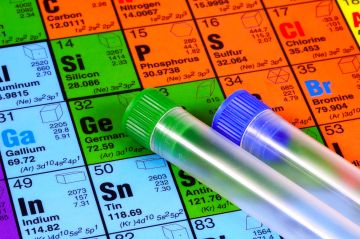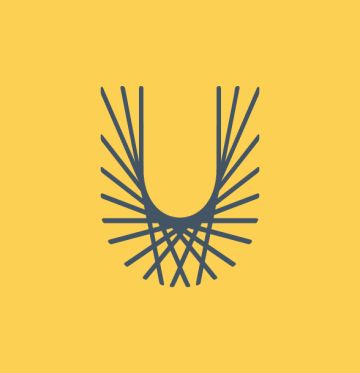
Why was this course developed?
The Certificate in Advanced Chromatographic Techniques was developed based on an analysis of the importance of the pharmaceutical and related industries in Ireland and within the South-East region and also using information generated from the Wales Ireland Network for Scientific Skills (WINSS) Scientific Survey from a large number of pharmaceutical/biotechnology, medical device and food companies. One of the outputs from this survey indicated that 45% of the companies surveyed require training in HPLC techniques while 37% require GC training. Recognizing this demand, the Certificate in Advanced Chromatographic Techniques was devised to provide advanced level training and address this skills deficit.
This course was developed to provide the student with an advanced understanding of the theory, practices and instrumentation associated with chromatographic separation techniques. The focus is primarily on High Performance Liquid Chromatography (HPLC) and Gas Chromatography (GC), Ion Chromatography IC and reverse-phase bioseparations. The interfacing of hyphenated techniques involving Mass Spectrometry (MS), such as LC-MS and GC-MS, is also covered.
The student will be exposed to state-of-the-art developments in associated instrumentation, and learn to competently operate, calibrate and qualify associated laboratory instrumentation. The student will be exposed to the application of advanced chromatographic techniques in a wide range of industrial environments focusing mainly, but not exclusively, on applications in the pharmaceutical and biopharmaceutical industries. This will enable them to select an appropriate separation technique for a given analysis in a range of industrial environments. The student will also learn to resolve sample preparation and method development issues for the chromatographic separation of samples in complex matrices.
What are the learning outcomes?
- On successful completion of this module, a student will be able to:
- Explain the principles, practices and instrumentation associated with advanced chromatography, as well as interfacing of hyphenated techniques involving mass-spectrometry such as LC-MS and GC-MS.
- Select an appropriate separation technique for a given analysis in a range of industrial environments.
- Resolve sample preparation issues concerned with GC, HPLC, ion chromatography and reverse-phase bioseparations.
- Resolve method development issues concerned with GC, HPLC, ion chromatography and reverse-phase bioseparations.
- Competently operate, calibrate and qualify associated laboratory instrumentation for pharmaceutical and biopharmaceutical sample analyses.
- Critically appraise separation science literature and identify future trends in this area.
How is this course delivered?
- The Certificate in Advanced Chromatographic Techniques programme is taught using a block approach on a part-time basis to facilitate students in full-time employment.
- Since this course is also offered as one module of the two year MSc in Analytical Science with Quality Management programme, the Certificate in Advanced Chromatographic Techniques is only offered once every two years.
- Over the duration of the programme, students will be required to attend SETU on our Waterford campus for approximately 7 – 8 days from September to December.
- This programme will be delivered through a blend of lectures, tutorial sessions and laboratory practicals, as well as independent study. Students will be required to attend SETU for four days of lectures, in addition to three to four days of laboratory practicals. Some of the lecture material is delivered in an e-learning capacity to facilitate distance learning.
- Continuous assessment will be carried out throughout the course of the programme.
The Certificate in Advanced Chromatographic Techniques programme is aimed at those already working in the pharmaceutical, biopharmaceutical and food industries. This programme is also suitable for students intending to/already undertaking postgraduate research study.
Advanced Chromatographic Techniques Entry Requirements
- Applicants for entry to this programme should hold a Level 8 Bachelor’s degree at honours level minimum 2.2 in an appropriate subject area or equivalent qualification
- Applicants whose first language is not English must submit evidence of competency in English, please see SETU's English Language Requirements for details.
How to Apply
Applications will open in March for intake in September. Once our application portal opens, the link to apply will appear on the course page above.
Subject to satisfying the aforementioned entry criteria, applicants will be offered places on a first-come-first-served basis per their application submission.
This course places a strong emphasis on the professional development of the graduate and is aimed at students already working in an industrial environment. Such a qualification will enable and facilitate career progression for graduates in the region.
Further study opportunities
This programme can be taken as a stand-alone Certificate worth 10 credits at level 9, or if the student wishes, they can use these credits towards the 60 credit Postgraduate Diploma in Analytical Science with Quality Management (SE51H /SE51J) or the 90 credit MSc in Analytical Science with Quality Management (SE51H /SE51J)
Stream Leaders

Dr Richie Ryan
Pharmaceutical Science Lecturer -
Call: +35351845509
Email: [email protected]
Profile
Dr Mike Kinsella
Lecturer in Chemistry/Organic Chemistry & Researcher, PMBRC -
Email: [email protected]
Profile
